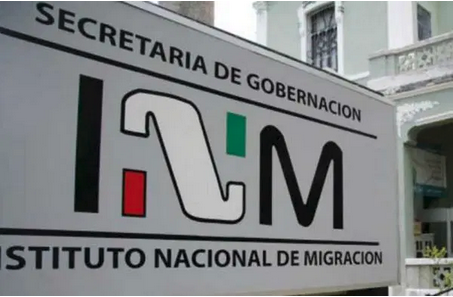A status regularization program has helped some foreigners stay in the country during COVID
by Rose Egelhoff
What would you do if you could not go home? That was the question many foreigners in Mexico faced during the pandemic, as some borders closed and others imposed expensive quarantine restrictions.
For incoming Americans and Canadians, getting a visitor’s permit to enter Mexico can be as easy as buying a flight or making a quick stop at the border. But when it comes to extending their stay, the same Americans, Canadians and others foreigners ordinarily have to leave the country, which can be difficult during a pandemic.
Luckily, in light of COVID-19, the Mexican government opened up a special status regularization program for foreigners. Under the standard process of applying for residency, the first of several steps occurs at a Mexican consulate in the applicant’s home country.
Under the special regularization program, travelers with expired visitor’s permits could obtain four-year temporary residency without leaving the country — a lifeline for many stranded expats. That together with a national-level effort at the National Immigration Institute (INM) to streamline and digitize the immigration process appears to have led to a vastly improved experience for many seeking to regularize their status.
One such stranded expat was Jen, a Canadian art dealer who fell in love with Mexico and now sells Mexican folk art online. She asked that her last name be withheld to speak openly about being in Mexico without proper documentation. Jen arrived in October of 2019, but had trouble leaving the country before her visitor’s permit expired.
“My visa originally expired in April but my flight was canceled and so my lawyer got me a one month visa extension and then because my flight was still canceled, she got me another extension till January. At that point in time they said not to really worry about it, just pay the fine when you leave the country,” she said.
Then she heard about a visa program available in Querétaro, which allowed certain foreigners to replace their expired Forma Migratoria Múltiple, the visitor’s permit also known as an FMM, with a four-year temporary residency card.
“When this whole program started, I was actually really sketched out … it sounded too good to be true,” Jen said.
She was particularly worried by rumors of deportations and increased immigration enforcement, since she had all her belongings with her in Mexico and hoped to stay in the country. To be safe, she waited three months, until April of this year, without hearing any reports of negative experiences with the visa program.
“So at that point I felt a little more safe going and doing this, but it was a risk,” she said. “I went to the bank that morning and paid [the National Immigration Institute] over 13,000 pesos, not knowing whether I actually going to get approved or not.”
Luckily for Jen, her application went smoothly. With limited travel options for returning to Canada, she was granted four-year temporary residency and later successfully applied for permission to work. She said her application was easy; she only had to wait half a day at the immigration office to get her residency card.
John, a Mazatlán-based Canadian, has been in Mexico for several years, and also struggled to return home as his FMM expired during the pandemic. Like Jen, John asked that his full name be withheld to openly discuss being in Mexico with an expired permit.
“It is definitely hard to get back to Canada right now. There are no direct flights. There is a lot of travel time to get back to my city,” he said, adding that Canada’s hotel quarantine policy for returning citizens could cost up to CAD $2,000, prohibitively expensive for many. The quarantine policy has been amended since John received residency, and travelers who have been fully vaccinated with an approved vaccine are now exempt.
John heard about the immigration regularization program on Facebook.
“I love living here so I decided to check it out,” he said. “My experience with the immigration institute was great. The whole process took only 3.5 hours so I feel very lucky.”
Guy Courchesne, the director of Teachers Latin America, works on immigration issues as part of his business recruiting foreign teachers. He said he first heard about the pandemic regularization program in February, but that it was not the first time the Mexican government had instituted such a policy.
“This is something they do every five years …”Courchesne said. “It’s a way to put amnesty out for all the people who are here illegally. [It’s] usually aimed at Central Americans more than anything else, but this year was the COVID twist. We were seeing, for example, Americans, Canadians, a lot of Australians because they are stuck, Europeans coming in to make use of it. That’s what’s a little bit different about it.”
Availability of the program seems to vary between locations, with some immigration offices not offering the program to people whose home countries have open borders and flights available. In other places, applicants report being quickly approved.
Courchesne said the most common program applicants were Canadians and Australians. Canadians faced a required two-week hotel quarantine, on their own dollar, and Australia had implemented caps on the number of flights into the country, making it difficult for some of their citizens to return.
Courchesne and other immigration consultants said the greatest challenges for visitors seeking to access the pandemic regularization program were the language barrier and bureaucracy. Though the INM has begun to digitize many of its processes, leading to faster processing times, Mexican bureaucracy still functions differently than what many foreigners are used to in their home countries. And navigating such a system in a foreign language complicates an already byzantine process.



